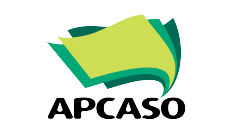By Ha Cassell, Program Officer, APCASO
Kuala Lumpur – Understanding how community-inclusive financing mechanisms works in Asia Pacific has not been fully explored especially in countries that will soon be transitioning out of The Global Fund and other external donors. This was the basis for the two-day regional forum held from September 5 to 6 in Malaysia.
Hosted by Malaysian AIDS Council (MAC), SHIFT country sub-recipient, the forum aims to discuss existing financing models, its prospects and opportunities, and explore new financing models in supporting advocacy and service delivery responses of civil society and communities through domestic funding. Around 35 participants from four SHIFT countries, Thailand, Philippines, Malaysia, and Indonesia, attended the forum. These include representatives from key population networks and civil society, Ministry of Health, Global Fund Country Coordinating Mechanisms, Regional UNAIDS and FHI 360 representatives.
At the forum, a SWOT analysis was conducted and presented to show how countries such as Malaysia and Thailand financing models for CSOs work. Consequently, similar approaches for other SHIFT countries, Indonesia and the Philippines will be explored. The forum also served as a venue to show best practices across all partners and explore areas and models that can be replicated, as well as potential strategies for advocacy within SHIFT country partners.
In my perspective, I did find this forum beneficial, especially, the sharing of good practices of approaches from other countries and how they can improve HIV financing advocacy for CSOs, especially at a time when funding from foreign donors is declining.
The forum coincided with the Progress Review of the SHIFT, or the Sustainable HIV Financing in Transition (SHIFT) Program, a two-year Global Fund-supported regional advocacy grant that commenced in January 2017. SHIFT aims to enable and empower civil society, including key populations communities, to advocate for sustainable HIV financing, especially domestic financing, in response to the recent decline of international funding in HIV programs. The regional programme is being managed by the Australian Federation of AIDS Organizations (AFAO), with the Asia Pacific Coalition of Male Sexual Health (APCOM) and APCASO has its regional sub-recipients.
“The cause of epidemic has been shifting from group to group over time. We need to think of how to make the advocacy messages effective to increase funding.”
“Transparency is needed in the process of getting funding for CSOs from the government. In the meantime, CSOs need to increase their effectiveness of service delivery as well as accountability in financing management.”
